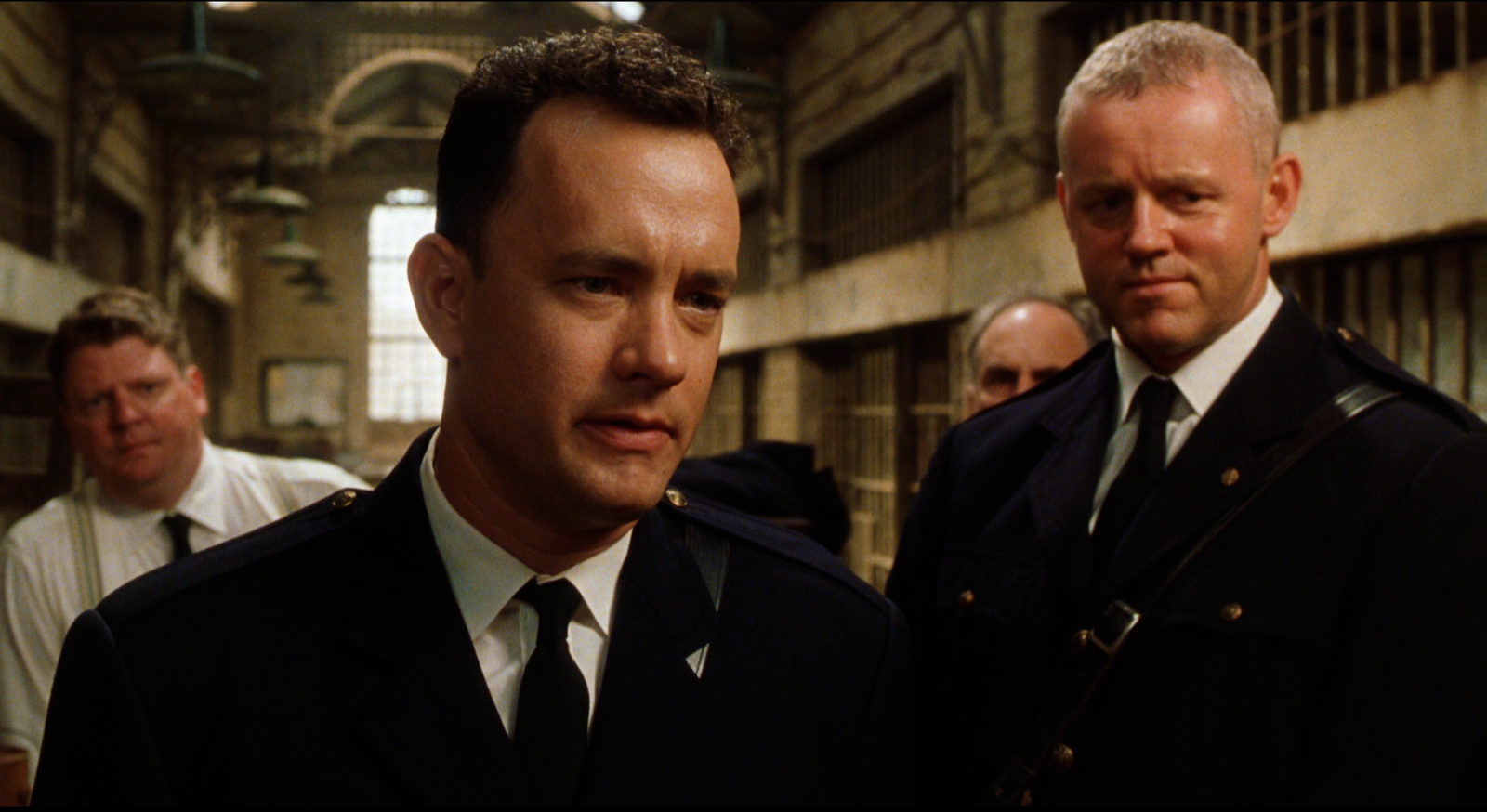The Green Mile (1999)
“The Green Mile” (1999), directed by Frank Darabont and based on Stephen King’s serialized novel of the same name, is a deeply emotional and thought-provoking story set within the walls of a 1930s Louisiana prison. Blending realism with elements of the supernatural, it explores themes of compassion, justice, faith, and the mystery of human goodness in the face of cruelty and death.
The film begins with an elderly man named Paul Edgecomb (Dabbs Greer) living in a nursing home, tormented by memories of his time as a death row prison guard at Cold Mountain Penitentiary during the Great Depression. As he recounts his story to a fellow resident, the narrative unfolds in flashbacks, revealing the events that forever changed his life.

In 1935, the younger Paul (Tom Hanks) oversees E Block, nicknamed “The Green Mile” because of the green linoleum floor that leads from the cells to the electric chair — known grimly as “Old Sparky.” Paul is a fair, decent man who treats the inmates with dignity, unlike the cruel and sadistic guard Percy Wetmore (Doug Hutchison), whose family connections protect him from punishment.

Everything changes when a new inmate arrives: John Coffey (Michael Clarke Duncan), a giant African-American man convicted of raping and murdering two young white girls. Despite his imposing size, Coffey is gentle, soft-spoken, and childlike in his demeanor — afraid of the dark and incapable of malice. Over time, Paul and his fellow guards — Brutus “Brutal” Howell (David Morse), Harry Terwilliger, and Dean Stanton — begin to suspect that there is something extraordinary about Coffey.

Their suspicions are confirmed when miraculous events occur. One night, Coffey heals Paul’s excruciating urinary infection simply by touching him and then expelling what seems to be black, disease-like particles. Later, he brings a pet mouse named Mr. Jingles — belonging to another inmate, the eccentric Eduard Delacroix — back to life after Percy cruelly crushes it.
As Coffey’s gentle nature and mysterious powers become undeniable, Paul begins to question whether this man could truly be guilty of such a heinous crime. When another inmate, the psychopathic “Wild Bill” Wharton (Sam Rockwell), arrives on death row and wreaks havoc, Coffey senses something evil within him. Through supernatural empathy, Coffey reveals that it was actually Wild Bill — not himself — who murdered the two girls.

Paul and his team are shaken by the revelation, realizing that Coffey is an innocent man with an almost divine gift — a vessel of pure goodness and healing. In a secret act of mercy, they take him out of the prison one night to heal the warden’s dying wife, Melinda Moores (Patricia Clarkson), who is suffering from a brain tumor. Coffey performs the miracle but absorbs her pain, nearly killing himself in the process.
Despite their knowledge of his innocence, Coffey refuses to escape or resist his fate. Weary of the cruelty and suffering in the world, he tells Paul he is ready to die, saying, “I’m tired, boss. Tired of being on the road, lonely as a sparrow in the rain.”
On the day of his execution, the guards are devastated. Coffey comforts them, forgiving everyone and asking not to have the hood placed over his head because he is afraid of the dark. As the current surges through him, Paul and his men are overcome with grief — knowing they have just executed a miracle of compassion and innocence.
Years later, Paul reveals to his friend that Coffey’s gift somehow extended his life unnaturally — he is now more than 100 years old and still alive, forced to bear the weight of his memories. He views his long life as both a blessing and a curse — a punishment for having killed one of God’s true miracles.
“The Green Mile” is a powerful meditation on humanity, justice, and the mystery of good and evil. Through John Coffey’s Christ-like character, the film explores how kindness can exist even in the darkest places. With unforgettable performances — especially by Michael Clarke Duncan and Tom Hanks — and an emotionally charged narrative, it remains one of the most profound and heartbreaking films of modern cinema.
Ultimately, The Green Mile reminds viewers that miracles are not about power or spectacle — but about empathy, sacrifice, and the quiet grace of goodness in a cruel world.



